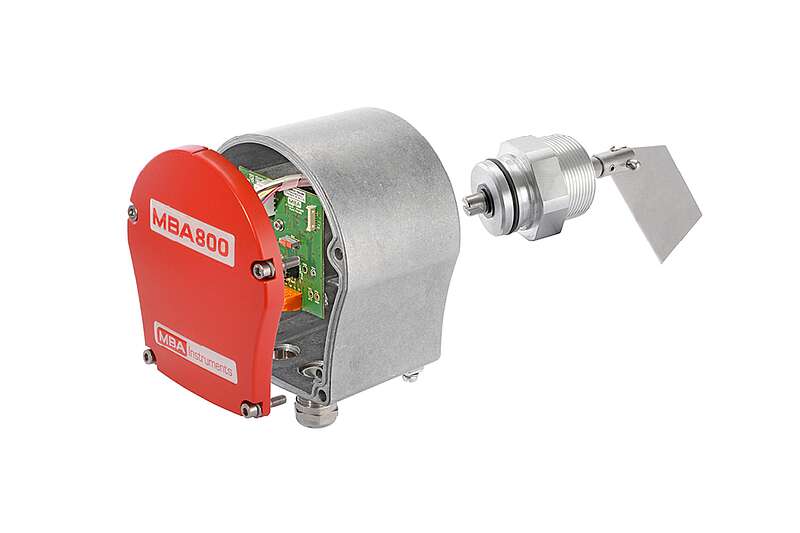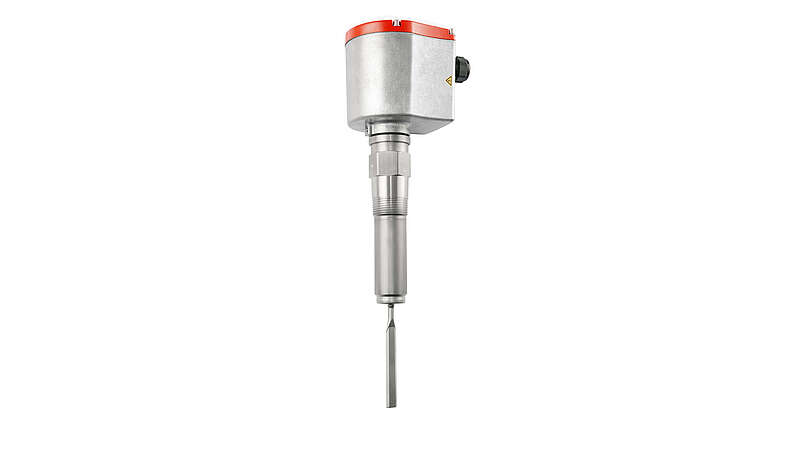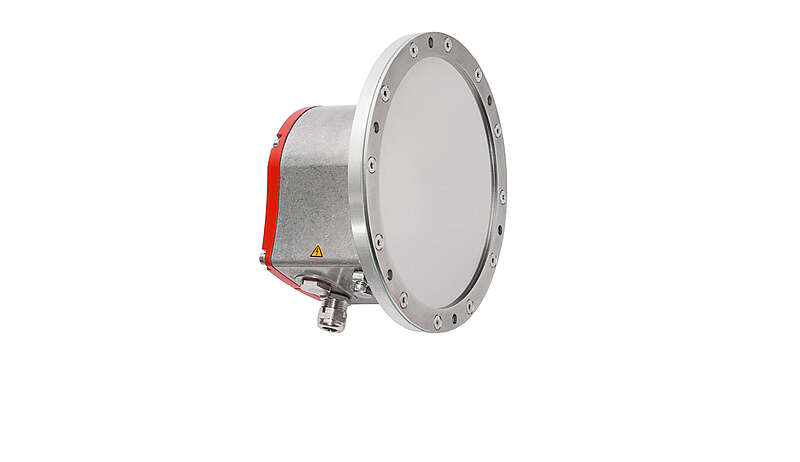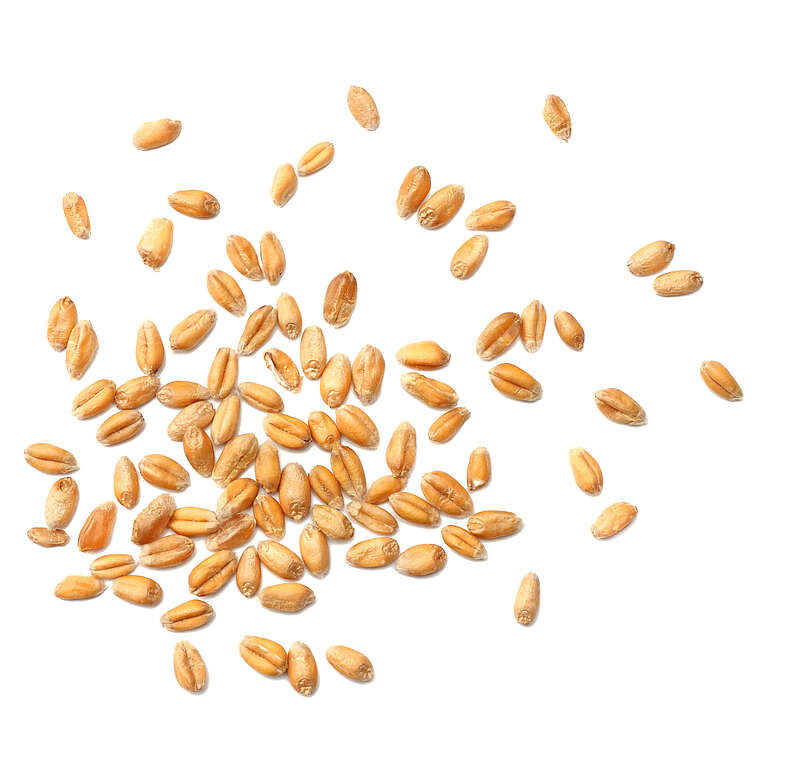Optimised storage through measurement technology in grain silos
Reliable monitoring of fill levels in grain silos is essential in agriculture. Processing companies such as mills and cereal manufacturers also rely on our measuring devices.
Production and logistics processes in grain processing are highly automated nowadays. Small but important components of this automation: measuring devices that precisely monitor the fill levels when filling grain silos. This is because overflowing a silo can quickly lead to considerable damage.
The measuring devices from MBA Instruments guarantee reliable level measurement that meets the quality requirements of the food industry.
Challenges of level measurement in grain silos
For level measurement in high grain silos, the measuring devices have to cope with the high levels of dust generated when filling the silos. Even after filling, the atmosphere in the silo remains dusty. Measurement technology is required that does not influence the measurement despite the dust adhering to the device. For extremely narrow and high silos, such as those required for the enormous quantities of grains and seeds, measuring devices with a minimised radiation angle of the measuring signal are suitable. The processes in the food industry place very high demands on hygiene. The measurement technology must therefore be specially tailored to the high requirements of the industry.
The conditions in the silo require mechanically stable sensors, a fast response speed of the indicator in the event of a backlog in the conveyor system and the avoidance of error messages due to falling bulk solids.
MBA's rotating paddle detector has proven itself and established itself in grain for many years. Although other measuring methods such as capacitive measurements work, they have to be readjusted if the properties of the grain change, especially if the bulk material properties such as the moisture content change.
The nature of the bulk material, for example in terms of moisture, density or dust formation, is decisive when choosing the right measuring device.
Precise and reliable level measurement should ensure the required measurement accuracy in all areas of the process chain.
MBA's reliable point level measurement reduces problems with unwanted reflections. The compact and robust measuring device with low weight provides accurate and reliable level measurement results, unaffected by bulk solids properties such as dust, moisture, conductivity or grain size.
The measuring devices are easy to operate and reliably deliver all the precise fill levels required in the production and logistics process of grain processing.
Rotary paddles for grain silos
Robust, ready for use and precise. The rotating paddle detector series from MBA impresses with state-of-the-art safety technology and a wide range of paddle options. These detectors are not only reliable, but also extremely versatile. Depending on the specific requirements, they can be used as full, on-demand or empty detectors in grain silos.
Membrane switch for grain silos
The maintenance-free membrane switch from MBA fulfils central point level measurement tasks in grain silos. The purely mechanical level switch is particularly user-friendly in its handling. Simply attach it to the silo wall and connect it to the signalling line to put the membrane switch into operation.
The bulk solid grain
Cereals are grains that usually come from cultivated grasses.
They contain very little fat, but are rich in essential fatty acids. In a narrower sense, cereals include all harvested grains that are used as a staple food for human consumption and as animal feed or for the production of luxury foods and technical products. In 2021, around 3 billion tonnes of grain were harvested worldwide.
Cereals form the basis of many diets worldwide and are an essential part of global agriculture. They play an important role in food security and are a key ingredient in products such as bread, pasta, cereals, animal feed and even industrial products such as ethanol.
Accurate monitoring of storage conditions in grain silos, supported by advanced level measurement technologies such as those from MBA Instruments, helps to ensure the quality and availability of this important resource.
Areas of application for our measurement technology
Whether pasta, muesli, bread and rolls - cereals and cereal products are important components of our diet. In the production of food and animal feed or the further processing of grain, the natural raw materials are often stored in silos. Grain silos are therefore an important component in various industrial processes. The areas of application for our measurement technology in these silos are correspondingly diverse.
Cereals are the most important source of nutrition worldwide. The variety of products is huge. Cereals are processed in a correspondingly large number of foods: in bread, pasta, cakes, etc. Grain is also found in beverages, for example in beer. Processing companies, mills and breweries rely on our measuring devices.
The silo designs must be checked for the special requirements of the various products with regard to filter cover, outlet diameter, ventilation cone and emergency drain. Good ventilation prevents mould growth and prevents the grain from losing value.
After delivery and before further processing, it must be ensured that the grain is dry and pest-free. The silo must also fulfil these requirements.
The use of high-quality feed that is free from contamination, pests and fungal infestation is the basis for healthy livestock. Poor feed hygiene increases the risk of disease in the animals.
The roof cover and sheathing therefore ensure that the bulk solids are stored regardless of the weather. With the help of our measurement technology, the fill levels of the grain silos can be monitored automatically.
Filling the silo is accompanied by heavy dust generation. The increasing demands on the quality of grain require safe and reliable storage of the bulk solids. The required quality is mainly dependent on further utilisation. To prevent the growth of microorganisms and enzymatic reactions, it is necessary to dry the grains harvested in a moist state before storing them in the grain silos.
Regardless of the conditions in the silo, our rotating paddle detectors provide reliable fill level readings.






